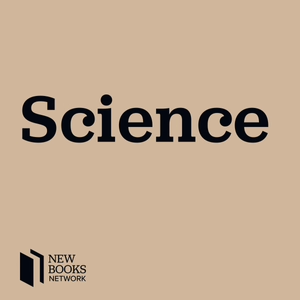
Snohomish River Fish Team: "Saving Salmon, Saving Orcas"
06/20/19 • 20 min
Snohomish County and the Tulalip Tribes survey fish four times a month around the Snohomish River estuary by setting a net and counting the fish it catches. They measure size, record species, and look to see if Chinook salmon are recovering in light of habitat restoration projects. Chinook salmon are the preferred food of the Southern Resident killer whales, the 76 orcas on the brink of extinction. Since the fish aren't doing well, the whales are starving. Scientists have focused much of their effort on restoring salmon habitat which has been lost to development, agriculture and other issues, but they say the projects are way behind and need to speed up if we want the orcas and their favorite prey to survive.
Snohomish County and the Tulalip Tribes survey fish four times a month around the Snohomish River estuary by setting a net and counting the fish it catches. They measure size, record species, and look to see if Chinook salmon are recovering in light of habitat restoration projects. Chinook salmon are the preferred food of the Southern Resident killer whales, the 76 orcas on the brink of extinction. Since the fish aren't doing well, the whales are starving. Scientists have focused much of their effort on restoring salmon habitat which has been lost to development, agriculture and other issues, but they say the projects are way behind and need to speed up if we want the orcas and their favorite prey to survive.
Previous Episode

Linda Rhodes: "Parasites In Sewage"
Linda Rhodes is a microbiologist with NOAA's National Marine Fisheries Science Center who studies how parasites in human sewage and animal waste may be hurting the Southern Resident killer whales. The amount of human sewage that ends up in the Salish Sea will shock you. It creates parasites that can enter the whales through their blow holes when they come up for air. Remnants of sewage have also been detected deep within the water column. It's possible these microbes could be causing the orcas to feel sick enough they don't want to eat, which may contribute to their health risks. Often experts point to a lack of food for the whales, who prefer Chinook salmon, which are also dwindling in number. But what if in addition to a lack of food, the Southern Residents just aren't hungry because they're sick?
Next Episode

Dawn Noren: "What's Killing Killer Whales?"
Dawn Noren is a federal research biologist with NOAA. She studies the physiology of the Southern Resident killer whales, specifically focused on blubber and body condition. She has worked on several high profile cases, including the historic intervention staged to save the young ailing J50, who eventually disappeared and is presumed dead. Recovery conversations have mostly focused on food, as the Southern Resident orcas only eat fish and their preferred diet, Chinook salmon, are also declining. While Noren does not disagree with the need to recovery salmon runs, her research shows that the whales are likely facing a much more complicated battle to survive. At the time of this recording, there are just 73 Southern resident killer whales left alive in the wild.
If you like this episode you’ll love
Episode Comments
Generate a badge
Get a badge for your website that links back to this episode
<a href="https://goodpods.com/podcasts/a-pod-cast-for-killer-whales-110866/snohomish-river-fish-team-saving-salmon-saving-orcas-5710641"> <img src="https://storage.googleapis.com/goodpods-images-bucket/badges/generic-badge-1.svg" alt="listen to snohomish river fish team: "saving salmon, saving orcas" on goodpods" style="width: 225px" /> </a>
Copy




